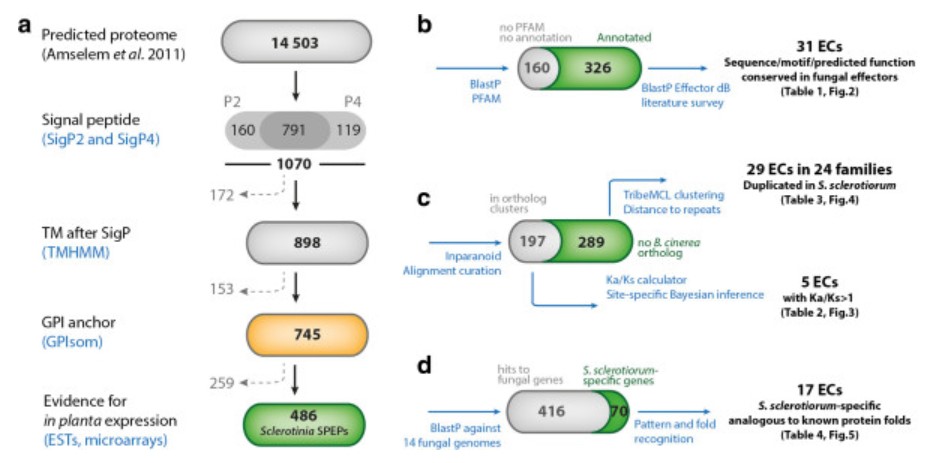Secretome Analysis of Fungal Plant
During the interaction between plants and pathogenic fungi, the pathogenic fungi import secreted proteins into plant tissues mainly through the secretory system. These proteins interact immunologically with plant-related proteins that have a defense but should. Secreted proteins play an important role in achieving plant infestation by pathogenic fungi, colonizing cells, and causing damage to plants. Secretory proteins are synthesized inside cells and then secreted outside cells. As a very important class of bioactive molecules, they play an important role in many physiological and pathological processes, such as cell signaling, apoptosis, development, and defense of organisms.
Lifeasible uses secretomes technology to help customers study the composition, expression levels, expression changes, and modification status of cellular secretory proteins at a holistic level and analyze the interactions between secretory proteins and the regulation of secretory proteins.
 Figure 1. S . sclerotiorum secretome prediction and analysis pipeline. (Guyon K, et al., 2014)
Figure 1. S . sclerotiorum secretome prediction and analysis pipeline. (Guyon K, et al., 2014)
- Prediction of the secretome of plant pathogenic fungi. To help our customers further analyze the structure and function of secreted proteins, we can provide predictive analysis of secreted proteins of plant pathogenic fungi. Specific predictive analysis services include signal peptide prediction, subcellular localization analysis, transmembrane structural domain screening, secretory protein quantitative analysis, and secretory protein functional analysis.
- Analysis of secreted small molecules of plant pathogenic fungi. Phytopathogenic fungi can produce substances such as phytohormones and phytotoxic stimulatory metabolites through synthetic pathways in different plants. We can use secretomes to compare the differences in secretory products between susceptible and resistant plants, which can help identify the key components that constitute host resistance and improve plant production and protection.
- Analysis of effectors of plant pathogenic fungi. The lifestyle of plant pathogenic bacteria parasitizing plants depends mainly on their secreted effectors, which can interact directly with host proteins to enhance pathogen virulence. We can identify more effectors using secretomes techniques and study how these effectors disrupt the plant immune system in combination with genomics and proteomics techniques. The focus of our work on virulence effectors is as follows.
- Secretome combined with genomics and transcriptomics to explore the regulation of host gene transcription by virulence effectors.
- Secretome combined with proteomics to explore the effects of effectors on the PAMP-triggered immunity pathway.
Lifeasible works on differential proteome expression during plant-fungal interactions to help customers understand the mechanisms of plant fungal infestation. As your trusted partner, we can meet all your fungal secretome analysis needs and provide you with efficient and high-quality services. If you want to know the details, please contact us.
Reference
- Guyon K, et al. Secretome analysis reveals effector candidates associated with broad host range necrotrophy in the fungal plant pathogen Sclerotinia sclerotiorum. BMC Genomics. 2014 May 4; 15(1): 336.
For research or industrial raw materials, not for personal medical use!
 Figure 1. S . sclerotiorum secretome prediction and analysis pipeline. (Guyon K, et al., 2014)
Figure 1. S . sclerotiorum secretome prediction and analysis pipeline. (Guyon K, et al., 2014)